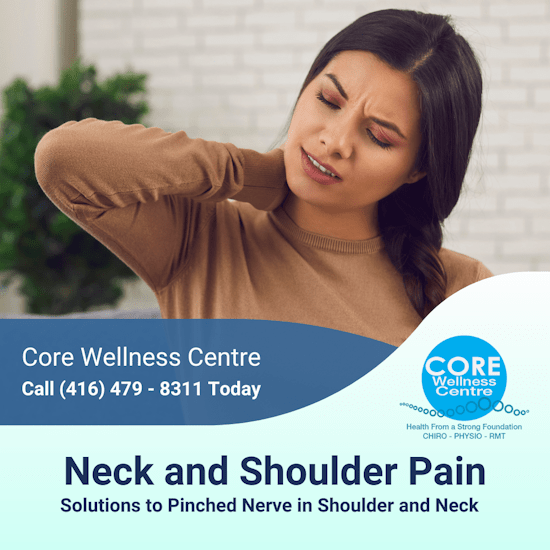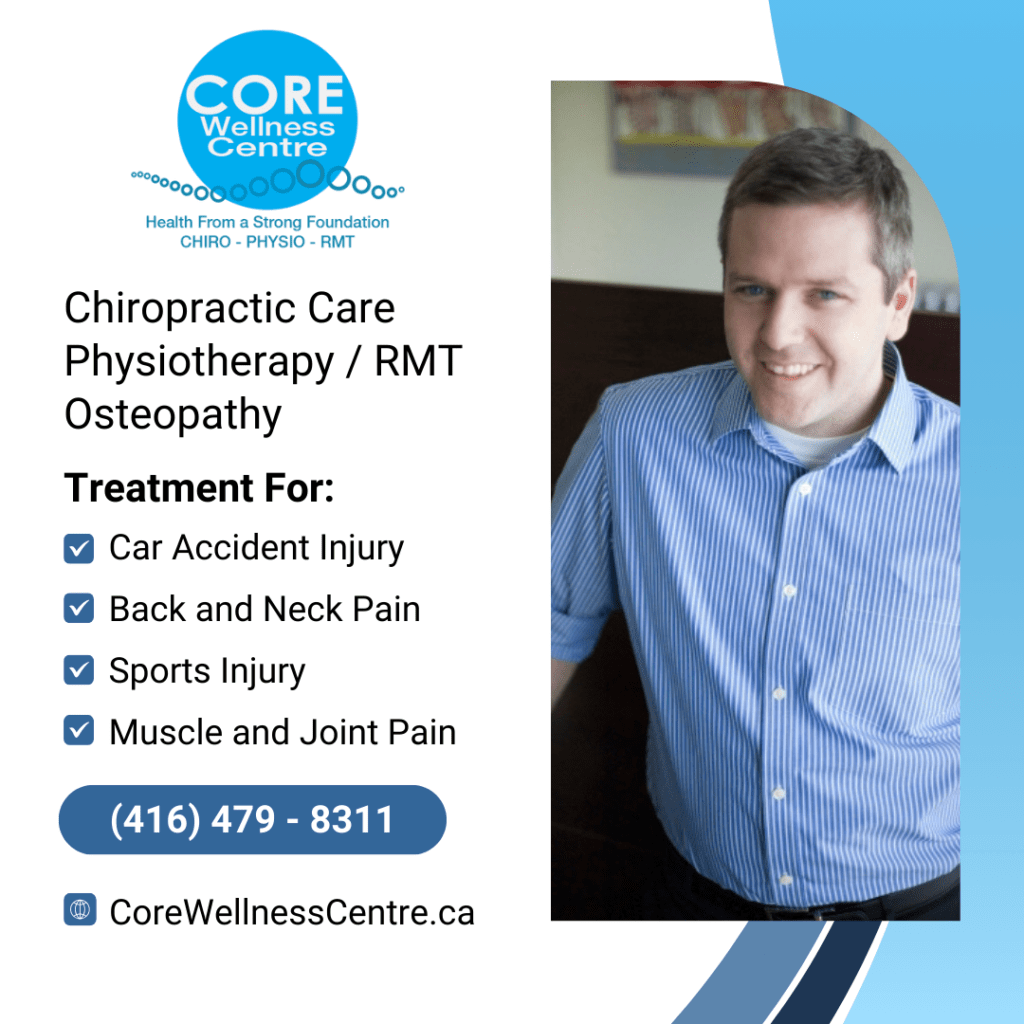
Pinched Nerve in Shoulder Pain
Shoulder health is paramount to our daily activities, and waking up with persistent pain could signal a pinched nerve in shoulder and neck.
This is a condition where a nerve in the shoulder becomes compressed or irritated, leading to a range of uncomfortable symptoms.
In this guide, we’ll delve into the various symptoms associated with a pinched nerve in shoulder, shedding light on this often-overlooked source of pain and providing insights into managing and alleviating its effects.
Some Common Symptoms of a Pinched Nerve
- Tingling sensations or numbness in the arm – Tiny pinpricks across the skin could signal nerve pinching
- Sharp or burning pain in the neck and shoulder – signaling nerve entrapment like brachial plexus or cervical nerve roots
- Weakness in the shoulder, arm, or hand – Gradual onset, makes simple tasks challenging
- Pain that worsens with neck movements – pain with neck turning or tilting, indicates nerve pressure
- Reduced movement in the neck – impacting daily routines, highlights the need for evaluation and treatment
- Radiating pain – Pain that travels from the shoulder down the arm, often following the path of the affected nerve.
- Muscle spasms – Involuntary contractions of muscles in the shoulder or arm, often accompanying nerve compression
- Difficulty sleeping – Unease or pain from the pinched nerve can make it challenging to find a comfortable sleeping position
- Sensitivity to touch – Increased sensitivity or pain when the affected area is touched or pressed
Causes of a Pinched Nerve in the Shoulder and Neck

Pinched shoulder nerves can stem from various factors, such as poor posture, improper pillow design, or slouching or hunching over for a long period of time, leading to misalignment of the spine and shoulders, putting pressure on the nerves.
Repetitive motions from sports or certain work activities lead to nerve compression over time, as well as injuries or trauma from falls or accidents.
Degenerative conditions such as arthritis can lead to the narrowing of spaces through which nerves pass, increasing the risk of nerve issues.
Understanding these underlying causes is crucial for implementing effective prevention strategies and seeking appropriate treatment for a pinched nerve in shoulder.
At Core Wellness Centre in Toronto, we offer a comprehensive assessment complete with digital posture analysis, reports of findings and on-site x-rays (if required).
Call us today for an assessment on (416) 479 – 8311 or
schedule your appointment below.
Common Areas of Pinched Nerves

Pinched Nerve in Shoulder and Neck
When a nerve in the shoulder becomes pinched, it can often radiate pain up into the neck region, causing discomfort and stiffness. This is due to the interconnectedness of the muscles and nerves in the shoulder and neck area.
The shoulder and neck muscles work closely together to facilitate movement and provide support, so when a nerve in the shoulder is compressed, it can affect the surrounding muscles and tissues, leading to pain and tension in the neck.
Pinched Nerve in Shoulder Blade
Pinched nerves can often occur specifically in the shoulder blade area due to a variety of factors. One common cause is poor posture, which can lead to misalignment of the spine and shoulders, putting pressure on the nerves that run through this region.
Symptoms of a pinched nerve in the shoulder blade area may include sharp or burning pain localized to the shoulder blade, as well as tingling sensations or numbness that radiate down the arm. These symptoms can significantly impact daily activities and may worsen with certain movements or positions.
Pinched Nerve with Numb Fingers
A pinched nerve in shoulder can lead to symptoms like numbness and tingling in the fingers, particularly in the hand connected to the affected shoulder. This occurs when the compressed nerve disrupts the normal flow of signals between the brain and the hand, resulting in abnormal sensations.
If left untreated, a pinched nerve in the shoulder can lead to complications such as muscle weakness in the affected hand, making it difficult to perform tasks that require fine motor skills or grip strength.
Importance of Good Posture and Proper Lifting Techniques
Maintaining good posture is a foundational step in preventing pinched nerves in the neck and shoulder. By keeping the spine aligned, whether sitting or standing, significantly reduces the pressure on the spine, thus lessening the likelihood of nerve compression.
Mastering proper lifting techniques by bending at the knees and keeping the load close to the body. Use leg muscles rather than straining the back and shoulders also helps distribute the weight more evenly and protects the delicate nerve pathways in the neck and shoulder from undue stress.
Treatment Solutions at Core Wellness Centre

Why Choose Core Wellness Centre
Our experienced practitioners work closely with patients to develop personalized treatment plans tailored to their specific needs, empowering them to find relief from pain and discomfort associated with a pinched nerve in shoulder.
With a multidisciplinary approach that integrates Chiropractic Care, Physiotherapy, RMT and Osteopathy, Core Wellness Centre in Toronto strives to provide comprehensive care that addresses the root causes of pinched nerves and promotes long-term healing and wellness.
Chiropractic Care for Pinched Nerves
Chiropractic care offers non-invasive treatment options for people suffering from pinched nerves. Chiropractic adjustments involve gentle, manual movements applied to surrounding areas or affected joints to alleviate pressure on the nerves.
By realigning the spine and correcting any misalignments, chiropractors can help restore proper nerve function and alleviate symptoms associated with pinched nerves in the shoulder and neck. Patients often find chiropractic care to be an effective and natural solution for managing pinched nerves.
Physiotherapy Solutions to Pinched Nerve
Physiotherapy focuses on restoring movement and reducing pain through various tools and techniques. Our team of professional Physiotherapists may employ a combination of therapeutic tools, exercises and manual therapy to address muscle imbalances and improve joint mobility.
Through personalized treatment plans, patients learn proper posture and movement patterns to alleviate strain on the nerves and promote long-term recovery. It plays an important role not only in relieving symptoms but also in addressing the underlying causes, so that many can regain control of their shoulder health and overall well-being.

RMT Massage for Pinched Nerve in Shoulder
Registered Massage Therapy (RMT) can also be a beneficial adjunct to chiropractic and physiotherapy treatments for pinched nerve in shoulder.
RMT involves targeted massage techniques designed to release tension
and improve circulation in the affected area,
helping to reduce inflammation and alleviate nerve compression.
By targeting the muscles and soft tissues surrounding the pinched nerve, RMT Massage can provide relief from pain and discomfort, promoting relaxation and facilitating the body’s natural healing process.
Many find that incorporating RMT into their treatment plan enhances the effectiveness of other therapies, promoting faster recovery and improved overall well-being.
Osteopathy Treatment for Pinched Nerves
At Core Wellness Centre, we are dedicated to providing comprehensive care for pinched nerve in shoulder and neck, which is why we offer osteopathy as another valuable treatment option.
Osteopathy focuses on the body’s musculoskeletal system and aims to restore balance and harmony to the body as a whole. Osteopathic treatments often involve gentle manual techniques applied to the affected areas, including the spine, joints, and soft tissues.
By addressing any underlying imbalances or restrictions in the body, osteopathy can help alleviate pressure on the nerves and promote optimal nerve function.
Take the first step towards relieving pain from a pinched nerve in shoulder and neck, and restoring mobility.
Schedule an appointment with our experienced team at Core Wellness Centre today to find personalized treatment solutions.
Don’t let discomfort hold you back any longer!
Call us on (416) 479 – 8311
FAQ Frequently Asked Questions
What are the most effective treatment options for relieving pain and discomfort associated with a pinched nerve?
The most effective treatment options for relieving pain and discomfort associated with a pinched nerve include treatments that aim to alleviate pressure on the affected nerve, reduce inflammation, and restore proper function.
Call us for more information on (416) 479 – 8311 for your particular issue.
How long does it typically take to see improvement with treatment for a pinched nerve?
The timeline for improvement with treatment for a pinched nerve can vary depending on factors such as the severity of the condition, individual response to treatment, and adherence to recommended therapies.
Are there any lifestyle modifications or exercises I can do at home to help alleviate symptoms of a pinched nerve?
Yes, there are several lifestyle modifications and exercises that can help alleviate symptoms of a pinched nerve.
These may include maintaining good posture, practicing relaxation techniques to reduce muscle tension, performing specific stretches and strengthening exercises recommended by a physiotherapist, and avoiding activities that exacerbate symptoms.
What are the potential risks or side effects associated with different treatment approaches for a pinched nerve?
While most treatment approaches for pinched nerves are generally safe, there may be some potential risks or side effects associated with certain therapies.
It’s essential to discuss any concerns or potential risks with us before starting treatment.
Is it possible to prevent future occurrences of pinched nerves, and if so, what steps can I take to reduce the risk?
While it may not be possible to completely prevent future occurrences of pinched nerves, there are steps you can take to reduce the risk.
These include maintaining good posture, avoiding repetitive movements or activities that strain the shoulders and neck, practicing proper ergonomics at work and home, staying physically active to promote muscle strength and flexibility, and seeking prompt treatment for any underlying conditions that may contribute to nerve compression.

